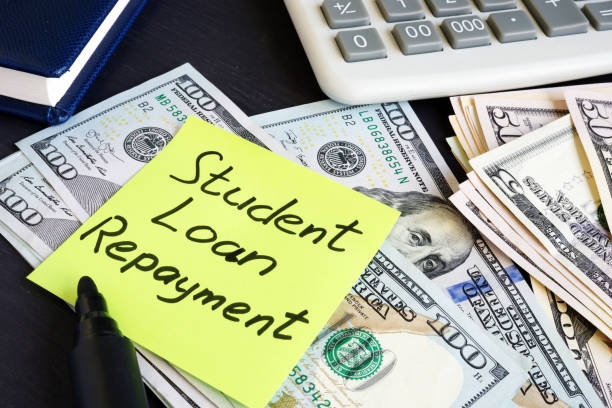Buying a car is an exciting milestone, but unless you have a hefty savings account, chances are you’ll be looking into a car loan. Car loans can seem complicated, but understanding how they work can save you a ton of money and stress. Whether you’re buying your first car or upgrading to a new model, knowing the ins and outs of car loans will help you get the best possible deal. Let’s break down everything you need to know to make your car purchase smooth and budget-friendly.
1. What Is a Car Loan?
Understanding the Basics of Auto Financing
A car loan is a type of installment loan specifically designed for purchasing vehicles. Essentially, a lender gives you money to buy a car, and you agree to pay it back over a set period with interest. The car itself acts as collateral, meaning if you don’t keep up with payments, the lender can repossess the vehicle.
Common Terms in Car Loans
You’ll often hear terms like “principal,” “interest rate,” “term length,” and “down payment.” The principal is the actual amount you borrow. The interest rate is the cost of borrowing that money. The term length is how long you have to repay the loan—usually between 24 and 72 months. The down payment is the upfront money you put toward the purchase, which lowers your loan amount.
2. Why You Might Need a Car Loan
Buying New vs. Used Cars
Whether you want a brand-new shiny car or a reliable used model, financing might be necessary. New cars typically come with higher prices and better financing deals from dealers, while used cars might have higher interest rates but lower overall cost.
When to Consider Leasing Instead
Leasing is another option that lets you drive a new car for a set time but without owning it. This can mean lower monthly payments but comes with restrictions like mileage limits and no ownership at the end. If you love switching cars often, leasing might be worth exploring.
3. How Your Credit Score Impacts Your Car Loan
Credit Scores and Interest Rates
Your credit score is one of the biggest factors lenders use to decide your loan terms. A higher credit score usually means lower interest rates, which means less money paid over time. If your credit score is low, you might face higher rates or even struggle to get approved.
Ways to Improve Your Credit Before Applying
Want better loan terms? Start by paying down debts, making on-time payments, and checking your credit report for errors. Even a small boost in your credit score can make a big difference.
4. Types of Car Loans
Dealer Financing vs. Bank Loans
Dealer financing is convenient—you pick the car, and the dealer arranges the loan. However, it’s smart to compare dealer offers with loans from banks or credit unions, which often have better rates.
Personal Loans as an Alternative
Some buyers consider personal loans instead of car loans. These aren’t secured by the car but may come with higher interest rates. They can be useful if you want more flexibility or are buying a used car privately.
5. How to Calculate Your Budget for a Car Loan
Monthly Payments and Loan Terms
Use an online auto loan calculator to estimate monthly payments based on loan amount, term length, and interest rate. Remember, longer terms mean lower payments but more interest paid overall.
Factoring in Insurance and Maintenance Costs
Your car payments are just part of the cost. Insurance, fuel, regular maintenance, and unexpected repairs also add up. Be realistic about your total monthly expenses to avoid surprises.
6. Tips for Shopping Around and Comparing Offers
Checking Multiple Lenders
Don’t settle for the first offer. Get quotes from banks, credit unions, online lenders, and dealers. Comparing multiple offers lets you spot the best rates and terms.
Negotiating Interest Rates and Terms
Sometimes lenders are willing to negotiate on interest rates or loan length. It never hurts to ask, especially if you have a strong credit profile.
7. Understanding Interest Rates and Fees
Fixed vs. Variable Interest Rates
Most car loans have fixed interest rates, meaning your payments stay the same. Variable rates can change over time, which might increase your payments unexpectedly.
Hidden Fees to Watch Out For
Watch for processing fees, prepayment penalties, or late payment fees. Ask lenders to explain all costs upfront to avoid surprises.
8. Down Payments and Trade-Ins
How Much Down Payment Should You Make?
A larger down payment lowers your loan amount and monthly payments. Aim for at least 10-20% if you can, but even a smaller down payment helps.
Using Trade-Ins to Lower Your Loan Amount
If you have a car to trade in, its value can be applied to your new loan, reducing what you need to borrow. Be sure to research your car’s trade-in value beforehand.
9. What to Look for in the Loan Agreement
Reading the Fine Print
Before signing, read every detail carefully. Make sure you understand interest rates, loan term, monthly payments, fees, and any special conditions.
Prepayment Penalties and Other Conditions
Some loans charge fees if you pay off your loan early. If you plan to refinance or pay ahead, find a loan without these penalties.
10. Managing Your Loan After Purchase
Setting Up Payments and Auto-Debit
Set up automatic payments to avoid late fees and protect your credit score. Keep track of your payment schedule and balance.
Refinancing Your Car Loan
If rates drop or your credit improves, consider refinancing to get a better deal and save money over time.
Conclusion
Navigating the world of car loans might seem overwhelming, but understanding the basics can put you in the driver’s seat—literally! From checking your credit score to comparing lender offers and reading the fine print, every step you take toward being informed helps you snag a better deal. Remember, a smart car loan is one that fits your budget and gives you peace of mind as you hit the road.
Frequently Asked Questions (FAQs)
Q1: Can I get a car loan with bad credit?
Yes, but expect higher interest rates and possibly smaller loan amounts. Some lenders specialize in bad credit auto loans.
Q2: Is it better to get a loan from a bank or the dealer?
Banks and credit unions often offer lower rates, but dealer financing is convenient and may include incentives. Always compare both.
Q3: How much should I put down on a car?
Aim for 10-20% to reduce monthly payments and avoid owing more than your car is worth.
Q4: Can I pay off my car loan early without penalties?
Check your loan agreement. Many loans allow early payment without fees, but some have prepayment penalties.
Q5: Should I refinance my car loan?
If you can get a lower interest rate or better terms, refinancing can save you money. Make sure to factor in any fees involved.




